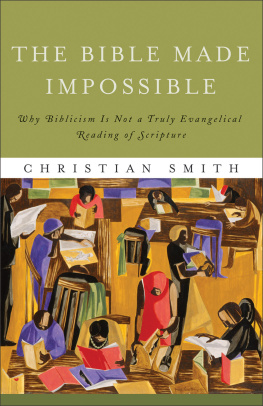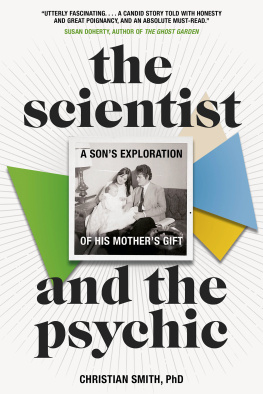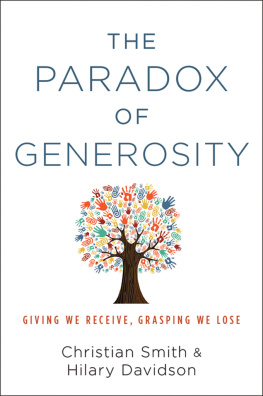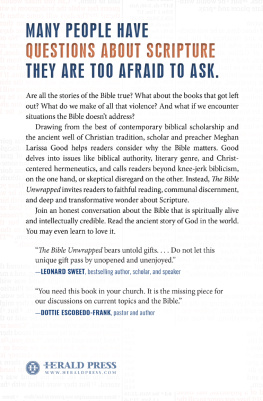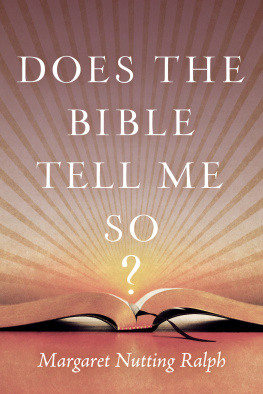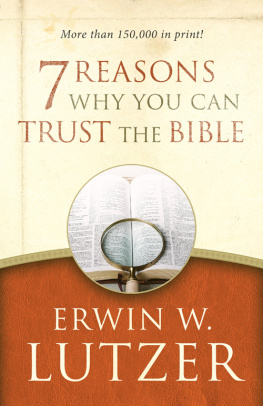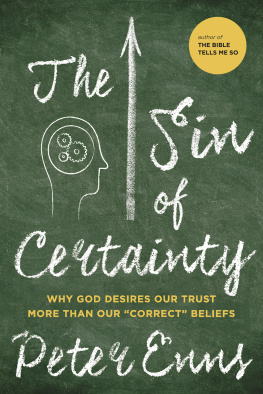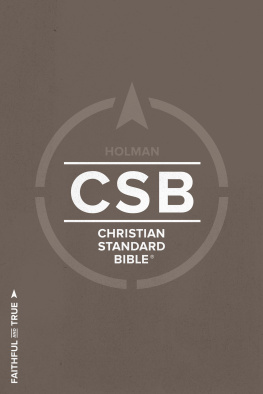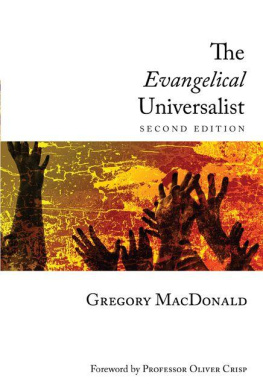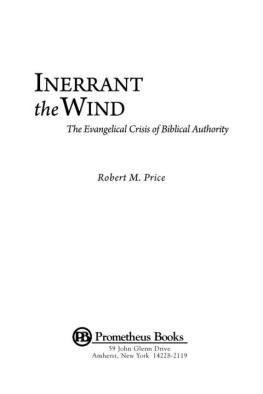Introduction
This book addresses Christians, especially evangelicals, who believe that the Bible is a divine word of truth that should function as an authority for Christian faith and practice, and who want to espouse a coherent position that justifies and defends that belief. My contention here is that the American evangelical commitment to biblicism, which I will define and describe in detail below, is an untenable position that ought to be abandoned in favor of a better approach to Christian truth and authority.
What follows is not an attack on Christian authority or the Bible. It is rather a critical interrogation of certain aspects of one specific account of biblical authority that I think reason and evidence show is impossible to defend and employ with integrity. The kinds of reason and evidence I bring to bear here are not those of the irreligious, skeptical unbeliever; rather, they are the sort of considerations Christians need to engage. The goal of this book is not to detract from the plausibility, reliability, or authority of the Christian faith or from scripture. The goal is to persuade readers that one particular theory of Christian plausibility, reliability, and authoritywhat I call biblicismis inadequate to the task.
I am aware that the term biblicism is often used pejoratively, as a disrespectful slight suggesting ignorance and lack of sophistication. I intend the use of the term here in a rather more neutral, descriptive sense, denoting a particular tradition of approach to scripture, as described in greater detail below. I contend that the biblicism that characterizes the thinking and practice of much of American evangelicalism is not so much wrong as it is impossible , even taken on its own terms. It simply does not work as proposed and cannot function in a coherent way.
In order for evangelical biblicism to appear to work, therefore, those who believe in it have to engage in various forms of textual selectivity, denial, and contortionwhich actually end up violating biblicist intentions. Most of these are practiced covertly, not in any sneaky way, but simply as the learned, taken-for-granted, and therefore largely unintentional habits of a particular subcultural style of thinking and behaving. Contemporary Christians who want to be theologically orthodox, biblical, and evangelical (in the best sense of the word) can and must do better. But before anyone is motivated to do better, we must confront the real problems with the current, inadequate biblicist account.
To be clear, I am not suggesting that all American evangelicals are biblicists. Some are not. And some others mix biblicism with other forms of authority, such as personal leadings of the Spirit. Many simply assume a kind of background biblicism without giving it much systematic thought. Many academic and more thoughtful evangelicals also tend to be more selective and careful in the way they articulate their biblicism. Furthermore, while I am focused here on evangelicals in particular, nearly all American Protestant fundamentalists are also biblicists, as are many if not most charismatic and pentecostal Christians. I am suggesting, therefore, that biblicism of the kind I describe below represents the epistemological center of gravity of much of American evangelicalism (and conservative Protestantism more generally) and so warrants the kinds of questions raised in this book.
By biblicism I mean a theory about the Bible that emphasizes together its exclusive authority, infallibility, perspicuity, self-sufficiency, internal consistency, self-evident meaning, and universal applicability. Different communities within American evangelicalism emphasize various combinations of these points differently. But all together they form a constellation of assumptions and beliefs that define a particular theory and practice. My argument as follows does not question the doctrine of the divine inspiration of the Bible. Nor am I here discounting the crucially important role that the Bible must play in the life of the church and the lives of individual Christians. I am not suggesting that the Bible is just a set of historical writings set in particular cultures, or the record of human subjective experiences of the divine that has little to say to contemporary people without being translated into terms that modern people can accept. Instead, what I say here is simply that the biblicism that in much of American evangelicalism is presupposed to be the cornerstone to Christian truth and faithfulness is misguided and impossible. It does not and cannot live up to its own claims.
I must also insist that my motives, goals, and arguments have nothing to do with promoting or representing theological liberalism. I am no theological liberal. While I believe that orthodox Christians need to engage intellectually and socially with theological liberals, I am and always have been a skeptic of theological liberalism as a project. I view the program of liberalism as an unworthy corrosion of historically orthodox, evangelical (again, in the best sense of that word) Christianity. I view theological liberalismdespite its good intentionsas naive intellectually, problematic in its typical ecclesial expression, and susceptible to unfortunate and sometimes reprehensible social and political expressions. It was no accident, for example, as Karl Barth explained at the time, that the prominent leaders of theological liberalism in the German church together publicly endorsed the causes of both Kaiser Wilhelm in World War I in 1914 and Hitler and the Nazis in 1933. When the church lacks a sovereign word of God that is not defined in terms of human subjectivity, experience, and culture, such ill-fated political moves become hard to resist. The theological liberal program lacks internal resources to help expose idolatry and so recurrently falls prey to the latest cultural movements and political fashions. I would go so far as to agree with J. Gresham Machen that theological liberalism is not one particular branch of Christianity; it is rather actually a very different religion from Christianity.
However, opposing theological liberalism does not necessitate biblicism as the only viable alternative , as some seem to believe. This notion is an unfortunate legacy of the American modernist-fundamentalist battles of the early twentieth century. Slapping the liberal! label on others is still a knee-jerk reaction of many evangelicals against any argument that on first glance does not seem identical to or more conservative than their own position. This tendency has much more to do with the sociological process of maintaining safe identity boundaries and avoiding truly challenging intellectual engagements than it does with sustaining Christian faith with appropriate confidence, integrity, and trust in God. In any case, to be clear, I deny any attempts to label the argument of this book liberal.
My argument in what follows focuses not merely on theories about what the Bible is believed to be and how it ought to function as an authority. It also focuses on how in practice the Bible is often actually read and used as an authority and on the results that this produces. I will suggest that the problematic results are not mere accidents or worst practices within an otherwise sound approach, but they are rather the inevitable outcomes of bad biblicist theory. In this I do not assume that empirical facts about what actually happens are all that are ever worth knowing. A great deal of Christianity is of course about conforming problematic empirical experience to what is ultimately true in and about reality. However, actual empirical human practices and experiences of Bible reading, interpretation, and applicationespecially when they are widespread and endemictell us a great deal about the adequacy of our theories about the Bible.

